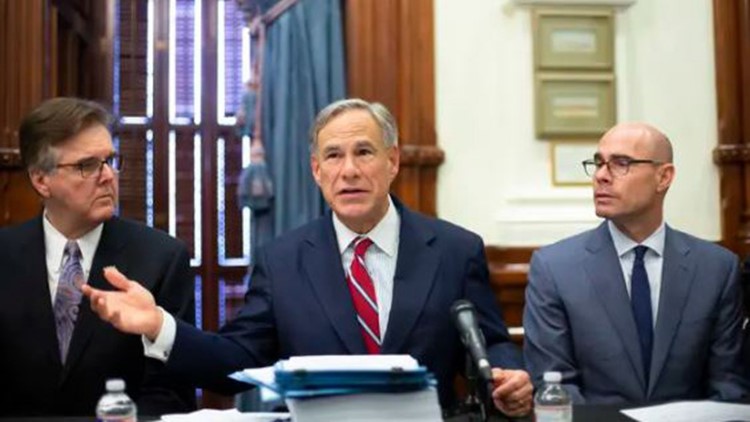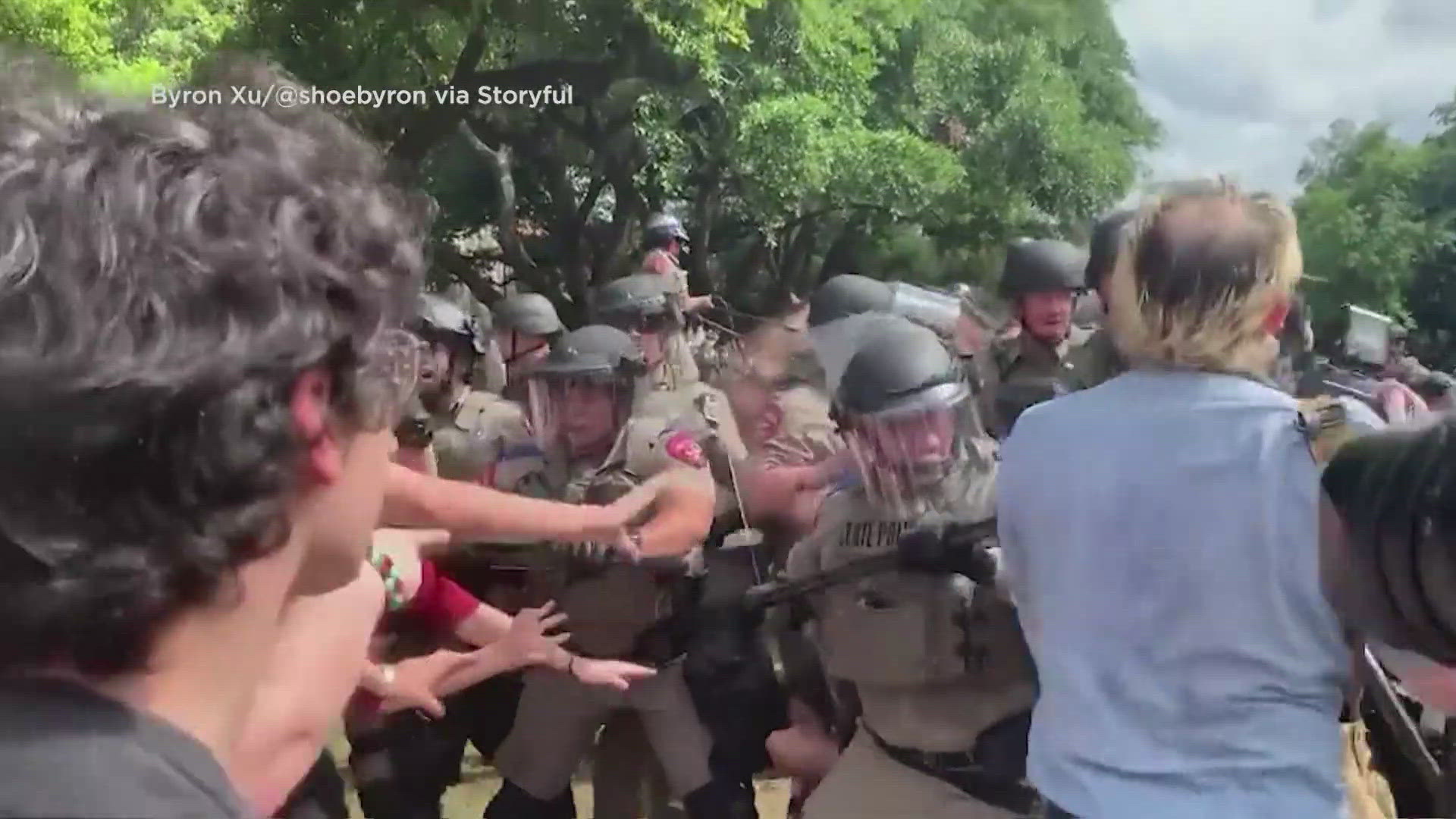AUSTIN, Texas — Gov. Greg Abbott announced that he and top Texas leaders will push for legislation next year that would freeze property tax revenues for cities that cut police budgets, our news partners at the Texas Tribune report.
The move is in response to Austin City Council's decision to cut police funding by one-third and reinvest money in social services.
“Any city in the state of Texas that defunds law enforcement will have their property tax revenue frozen as of that time," Abbott said. "This will be an effective tool that effectively will prevent cities from being able to reduce funding support for law enforcement agencies."
Texas’ four largest cities — Austin, Dallas, Houston and San Antonio — each spent more than a third of their general funds on their police departments in their respective 2020 fiscal years. But on Thursday, Austin decided to cut its police department budget by $150 million, after officers and the city’s top cop faced months of criticism over the killing of an unarmed Black and Hispanic man, the use of force against anti-police brutality protesters and the investigation of a demonstrator’s fatal shooting by another citizen.
RELATED: City council votes to slash $150 million from Austin Police Department, approves city budget
The death of Houston native George Floyd, a Black man killed by Minneapolis police officers during an arrest, has spurred protests against police brutality and calls to reduce police funding across the state and country. Police reform advocates are pushing cities to reallocate police funds to areas like housing, social services and public spaces. Austin was the first major Texas city to cut its police department’s budget.
"If we have police brutality, we don't need fewer police, we need less police brutality, and so we need to take action, whether it be as a Legislature or in police departments or whatever the case may be," Abbott said. "We do need to take action to ensure that law enforcement officers are trained in ways in which they will not engage in police brutality."
The Houston City Council approved a minor funding increase to its police department in June, but an amendment that tried to redistribute some of the money to other areas, like the police oversight board and loans for businesses owned by Black and brown people, was rejected.
San Antonio’s proposed budget for 2021 increases overall police funding by $8 million, but cuts overtime and funds health and violence prevention programs. In Dallas, the proposed 2021 budget includes a minor increase in police funding, and $3.2 million for safety net resources. Both cities are scheduled to approve their budgets in September.
In Fort Worth, where Abbott’s press conference was held, voters supported renewing the half-cent sales tax that funds at least 24% of the city police department's budget in July. According to the Fort-Worth Star Telegram, the city is considering a proposal to redirect some funds within their Police Department to expand their mental health team, increase funding to nonprofits and creating a civilian response program.
Advocates have argued that while police departments receive a large portion of city funds, safety net programs remain underfunded and Black and brown communities are disproportionately affected by unemployment, lack of adequate housing and poverty. In 2018, 19.6% of Black Texans lived below the poverty line, according to the U.S. Census Bureau, compared with 20.9% of Hispanic Texans and 8.5% of non-Hispanic white Texans.
WATCH: MORE POLITICAL NEWS
“The only way that you're going to prevent crime is by addressing the root causes of crime, and the main one is poverty,” said Nora Soto, co-founder of Our City Our Future in Dallas. “Police have acted as a poverty patrol. They're criminalizing poor people.”
Police unions explain that law enforcement is expensive and involves a wide range of responsibilities, which include everything from responding to potentially dangerous emergency 911 calls to attending monthly neighborhood meetings.
“Just because of the sheer volume of tasks that we are responsible for dealing with, public safety is going to be the most expensive part of a city budget across the board. That's really just demand,” said Jennifer Szimanski, public affairs coordinator for the Combined Law Enforcement Associations of Texas.



